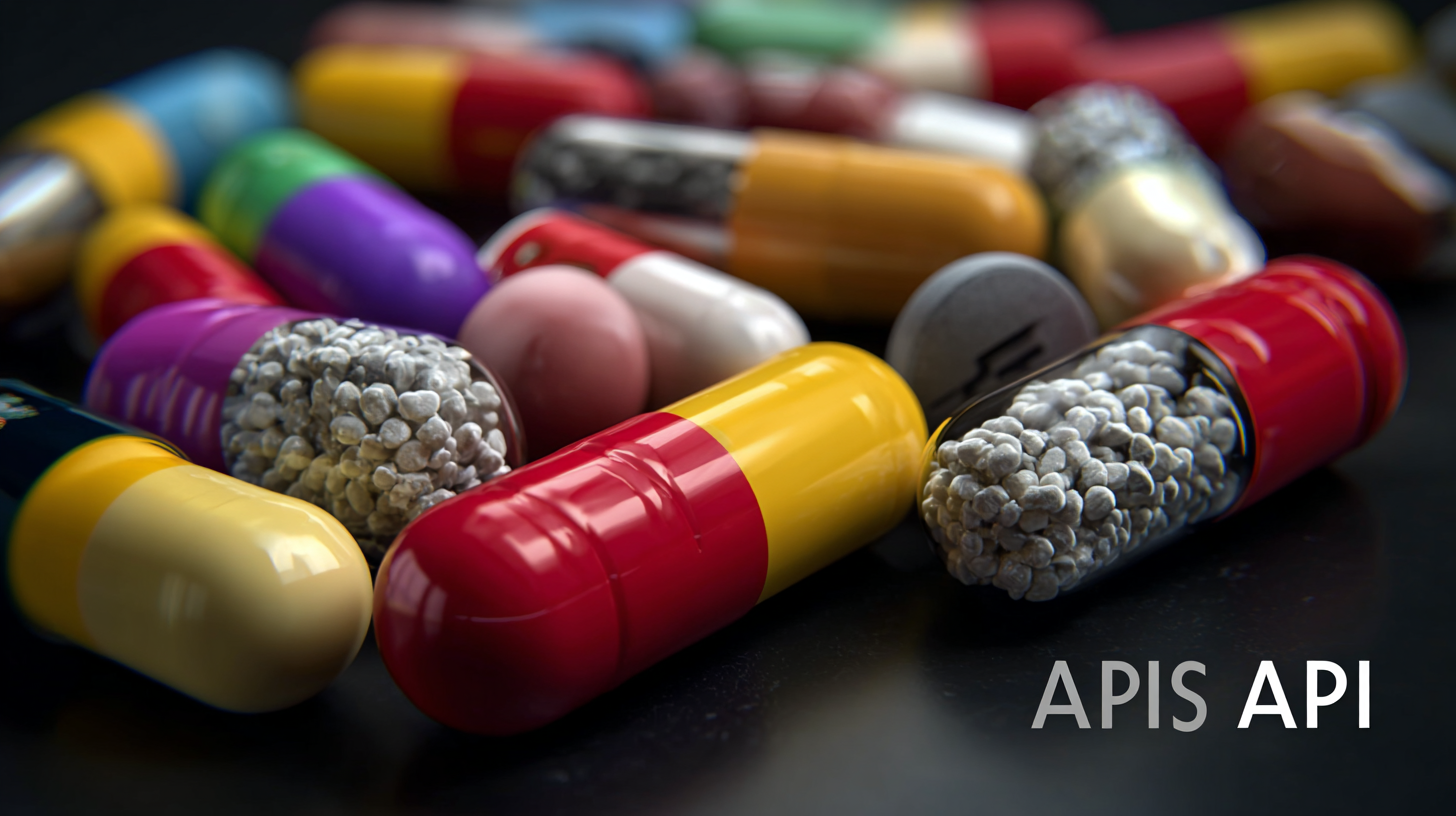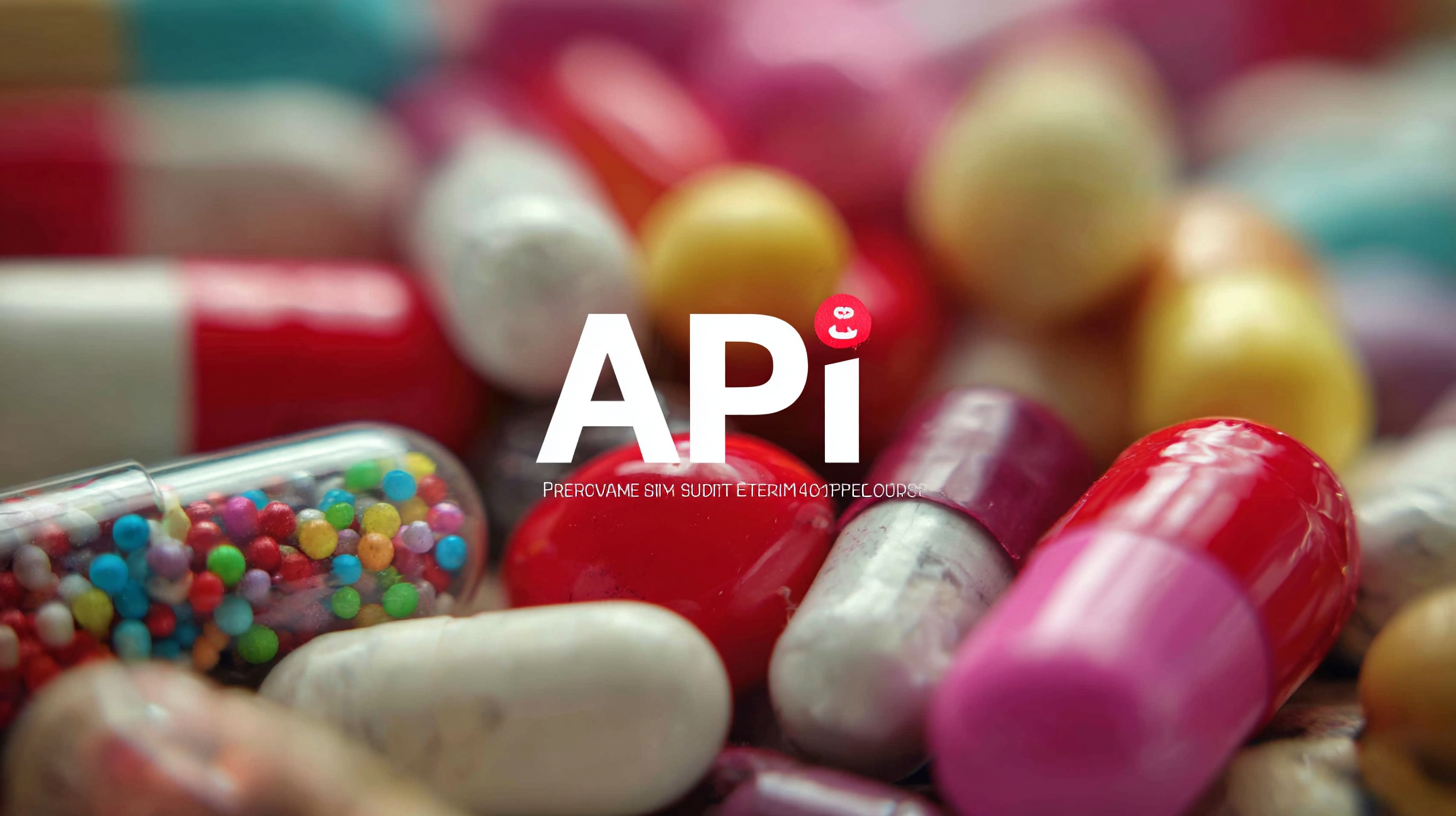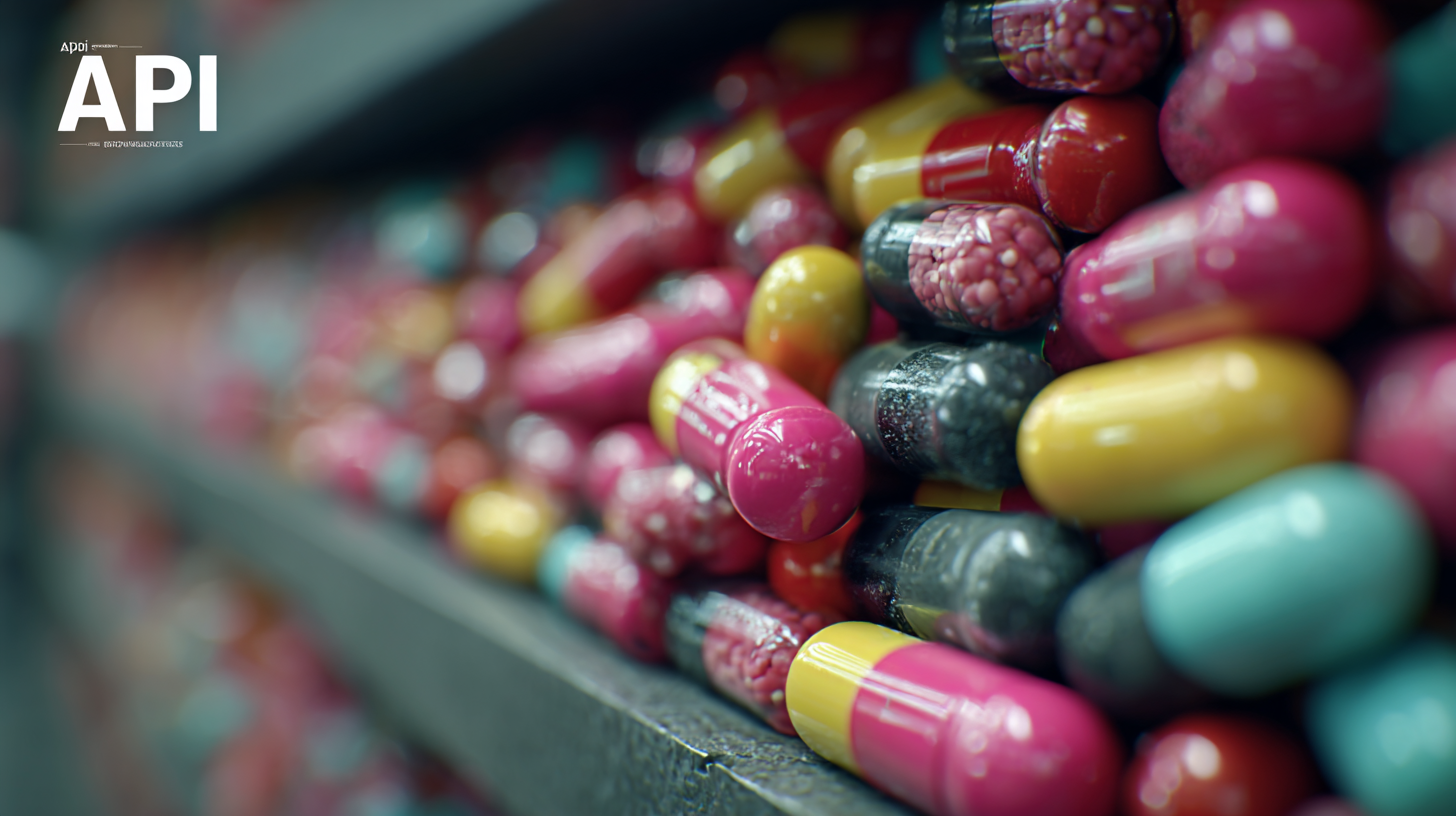In today's competitive pharmaceutical landscape, the importance of sourcing high-quality Active Pharmaceutical Ingredients (APIs) cannot be overstated. As the demand for innovative therapies continues to rise, companies around the world are seeking reliable Pharmaceutical API Suppliers that can provide not only compliance with stringent regulatory standards but also the assurance of excellence. This blog explores the distinct characteristics and applications of various types of pharmaceutical products, shedding light on the meticulous selection process for APIs.

Additionally, we will delve into practical "how-to" strategies for elevating your global sourcing standards, particularly from reputable suppliers in China. Join us as we navigate the complexities of pharmaceutical sourcing, ensuring that your products meet both quality and efficacy requirements in an increasingly globalized market.
The competitive edge of Chinese pharmaceutical APIs (Active Pharmaceutical Ingredients) in global sourcing is increasingly evident. According to a recent report by the Research and Markets, China's pharmaceutical API market is expected to reach USD 45 billion by 2025, driven by robust manufacturing capabilities and favorable regulations. This growth positions Chinese suppliers as key players who can deliver high-quality APIs at a fraction of the cost compared to their Western counterparts.

Moreover, the Chinese pharmaceutical sector benefits from a vast and skilled workforce, fostering innovation and efficiency. With over 750 pharmaceutical manufacturers certified by the FDA, the country's commitment to quality assurance meets international standards. A study published in the Journal of Pharmaceutical Sciences highlighted that APIs sourced from China not only comply with stringent quality regulations but also often deliver higher yields, thus optimizing production processes for global pharmaceutical companies. As the global demand for cost-effective and high-quality medications rises, leveraging Chinese pharmaceutical APIs provides a strategic advantage for companies seeking to enhance their sourcing strategies.
When sourcing pharmaceutical Active Pharmaceutical Ingredients (APIs) from China, it is essential to consider several key factors that can significantly impact the quality and reliability of your supplies. First and foremost, understanding the regulatory landscape in China is crucial. Ensure that your chosen suppliers comply with the stringent requirements set by the China Food and Drug Administration (CFDA) and adhere to Good Manufacturing Practice (GMP) standards. This not only guarantees the quality of the APIs but also facilitates smoother importation processes.
Additionally, evaluating the supplier's track record and experience in the pharmaceutical industry is vital. Conduct thorough due diligence by requesting certifications, audit reports, and references from previous clients. A supplier with a proven history of delivering high-quality products can significantly reduce risks associated with supply chain disruptions. Furthermore, fostering strong communication and collaboration with your suppliers can enhance transparency and facilitate easier resolution of any potential issues, ultimately leading to a more efficient sourcing process.
When it comes to sourcing pharmaceutical Active Pharmaceutical Ingredients (APIs) from China, quality assurance practices play a pivotal role in ensuring product reliability and compliance with global standards. Premium API suppliers in China implement rigorous quality management systems, which are essential for maintaining the highest levels of integrity and safety in their products. These suppliers often adhere to internationally recognized certifications, such as ISO 9001 and GMP (Good Manufacturing Practices), demonstrating their commitment to maintain stringent quality controls throughout the manufacturing process.
Moreover, leading suppliers foster transparency and collaboration within the supply chain, allowing for traceability and accountability. They perform extensive testing and validation of their APIs, utilizing advanced analytical techniques to ensure that every batch meets the requisite specifications. Regular audits and third-party inspections serve as vital checks in maintaining quality standards, while also instilling confidence among global clients. Investing in partnerships with such suppliers enables companies to elevate their sourcing strategies and ultimately enhance the quality of their pharmaceutical formulations.
Navigating regulatory compliance in the Chinese pharmaceutical industry presents both challenges and opportunities for global sourcing. Recent reforms to China’s Drug Administration Law have established a more robust regulatory framework aimed at enhancing the integrity and quality of local pharmaceutical manufacturing. These changes reflect the government’s commitment to elevating industry standards while also aligning with international norms, thus offering foreign companies a more favorable environment to source high-quality Active Pharmaceutical Ingredients (APIs).
As companies aim to leverage China’s vast manufacturing capabilities, understanding the intricacies of the regulatory landscape becomes essential. The pharmaceutical sector operates within a complex web of compliance requirements, necessitating a well-informed approach to marketing and distribution. By emphasizing transparent practices and ensuring adherence to local regulations, companies can successfully navigate this regulatory maze, paving the way for sustainable business growth in one of the world’s largest pharmaceutical markets.

Building sustainable partnerships in the pharmaceutical industry is crucial for ensuring a steady supply of high-quality Active Pharmaceutical Ingredients (APIs). As the global demand for pharmaceuticals continues to rise, forging strong relationships with trusted manufacturers is essential. China, known for its vast production capacity and stringent quality controls, offers a unique opportunity for companies to access premium pharmaceutical APIs while promoting sustainability in their sourcing practices.
Collaborative partnerships not only enhance supply chain stability but also drive innovation and compliance with regulatory standards. By working closely with Chinese manufacturers, companies can optimize their sourcing strategies, ensuring timely delivery and maintaining product integrity. These partnerships facilitate knowledge exchange, enabling both parties to adapt to evolving market demands and implement best practices for sustainable development in pharmaceutical sourcing.
Emphasizing transparency and mutual growth, such alliances are key to elevating global sourcing standards in the pharmaceutical sector.